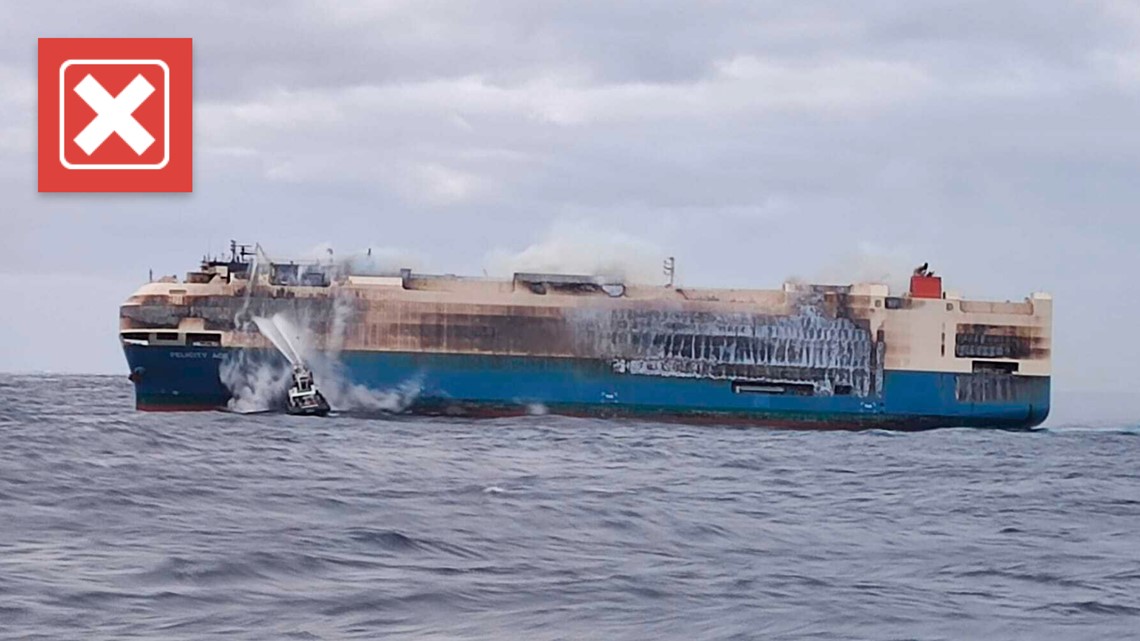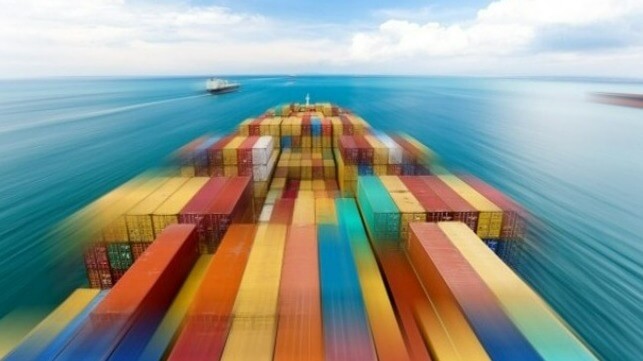Felicity Ace Cars Are Not “Finder’s Keepers” In Maritime Law

The crew of the Felicity Ace abandoned ship when it caught fire in the Atlantic, but that doesn’t mean the ship or the luxury cars on board are free to enter.
A freighter carrying expensive luxury cars caught fire in the mid-Atlantic on February 16, forcing all 22 crew members to be rescued by the Portuguese Navy.
The ship, the Felicity Ace, was carrying cars made by Porsche, Bentley and Volkswagen from Germany to the United States, but only reached the Portuguese Azores islands, where it remains adrift a few hundred miles off the coast. rating.
A viral tweet pointed to the prized cargo and claimed that because the crew had abandoned the ship, “under maritime law the ship is now ‘the custodians of the discoverers'”.
THE QUESTION
Are the Felicity Ace and its cargo of luxury cars now ‘finders keepers’ under maritime law?
THE SOURCES
THE ANSWER
No, neither the ship nor the luxury cars on board are “finders keepers” under maritime law.
WHAT WE FOUND
There is no concept of “finder-keepers” in maritime law.
“That old adage, ‘finders keepers,’ which really applies to… what you call ‘dirt law,'” said Twain Braden, a maritime lawyer. “The premise is…you found it, it’s here…it’s presumed abandoned.”
“Then you have the Maritime Salvage Act, which is the opposite,” he said. “You find something floating at sea, and it’s valuable, it’s not presumed abandoned.”
In other words, although the Portuguese Navy and the Japanese shipping company MOL (owner of the ship) have both confirmed through press releases that the 22 crew members on board the Felicity Ace have abandoned ship, this does not does not mean that the owners of the ship or the cars on board have lost their property.
“There has to be an intention for something to be dropped,” said James Mercante, Admiralty Partner at law firm Rubin Fiorella Friedman & Mercante. “As the crew abandoned ship…they abandoned to save themselves. They didn’t legally abandon the ship or the cargo.
“The ship is owned by someone, the ship is managed by someone, the ship is insured by someone,” he said, adding that the same goes for the luxury vehicles on board. .
This means that a random boat could not just walk up to the ship and board one of the cars without consequence.
“They certainly could, but it wouldn’t be legal,” Braden said.
Tugboats and a crew hired by MOL are now on site to investigate what, if any, of the vessel and its cargo can be salvaged.
There is one way, in theory, for a random ship’s captain to take advantage of this fire: the law of salvage. It is a maritime principle by which people are rewarded for helping to save ships in distress or their cargo.
“The salvage concept is that they save the owners from a total loss, they save the insurance company from paying out a total loss,” Mercante said. “So they should be rewarded for that.”
The reward will vary depending on the risk the rescuers took, the cost of their equipment, their level of skill and effort, and most importantly the value they actually saved.
“If they don’t pass, they don’t get paid,” Mercante said.
But there is no legal framework for the rescuer to keep part of the cargo.
“You can’t keep the thing,” Braden said. “You can’t keep the ship or the portions that are on board, but you have a claim against the value of those things you salvage.”
This value is often determined in court. But in this case, if the rescuers are contracted professionals, not just good Samaritans, that’s unlikely.
Lifesaving is a big enough industry that there are companies that are at least partially dedicated to it, making amateur lifesaving largely impractical in modern times, says Braden.
“The days of lifeguards going out and… chasing wreckage are… pretty much over,” he said.
Still, in theory, if another ship had decided to try to help save the Felicity Ace or somehow facilitate the extinguishment of the fire, it could potentially claim a reward, Mercante says.
“[If] a Good Samaritan comes along and assists and actually does something – let’s just say [a] separate company that is not part of the salvage team – get a queue and just hold the ship into the wind to get the fire away from the ship…they can certainly pay salvage compensation for their help. And in a major disaster like this, I think a rescuer – even if they have a contract – would welcome help if needed,” he said.
More CHECK: There is no shortage of avocados in the United States right now, but the supply chain could be affected

